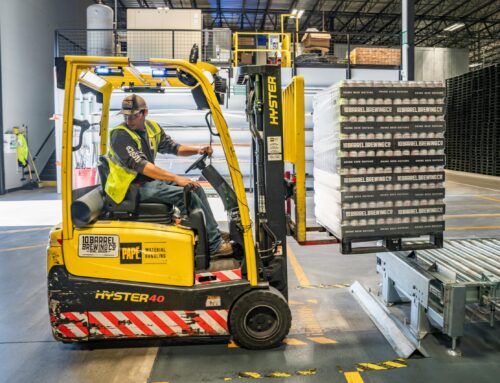In today’s rapidly evolving business landscape, sustainability has become a critical factor for long-term success. As companies strive to remain competitive and relevant, they must consider the integration of sustainable energy practices into their operations. The topic of sustainable energy is not just an environmental concern; it directly impacts business growth, cost efficiency, and overall resilience. Let’s explore why companies need to prioritize sustainable energy and how they can implement it effectively.
Why Companies Need to Consider Sustainable Energy
- Cost Savings and Efficiency: Sustainable energy solutions, such as solar power, wind energy, and energy-efficient technologies, can significantly reduce operational costs. By harnessing renewable resources, companies can decrease their reliance on fossil fuels and mitigate the impact of rising energy prices. Investing in energy-efficient equipment and practices can lead to substantial savings over time.
- Regulatory Compliance and Reputation: Governments worldwide are increasingly enforcing environmental regulations. Companies that fail to adopt sustainable practices may face penalties or reputational damage. Consumers and investors are also becoming more conscious of a company’s environmental footprint. Embracing sustainable energy demonstrates corporate responsibility and enhances a company’s reputation.
- Risk Mitigation: Traditional energy sources are finite and subject to geopolitical tensions. By diversifying energy sources and incorporating renewables, companies can reduce their exposure to supply chain disruptions. Sustainable energy provides stability and resilience, especially during times of crisis.
Implementing Sustainable Energy in Business
1. Assess Energy Consumption
Before implementing sustainable energy solutions, companies must understand their energy consumption patterns. Conduct an energy audit to identify areas of improvement. Consider factors such as lighting, heating, cooling, and machinery. This assessment will guide the development of an effective energy strategy.
2. Invest in Renewable Energy Sources
- Solar Power: Installing solar panels on rooftops or unused land can generate clean electricity. Companies can either purchase solar systems outright or enter into power purchase agreements (PPAs) with solar providers.
- Wind Energy: If feasible, companies can invest in wind turbines to harness wind power. Wind farms can supply electricity to both large corporations and smaller businesses.
- Geothermal Energy: Utilizing geothermal heat pumps for heating and cooling can reduce energy consumption. Geothermal energy is reliable and has minimal environmental impact.
3. Adopt Energy-Efficient Technologies
- LED Lighting: Replacing traditional bulbs with energy-efficient LED lights can significantly cut electricity usage.
- Smart Building Systems: Implementing smart sensors, automated HVAC systems, and energy management software optimizes energy consumption.
- Electric Vehicles (EVs): Transitioning to an EV fleet reduces emissions and lowers fuel costs.
4. Employee Engagement and Training
Educate employees about sustainable energy practices. Encourage energy-saving behaviors, such as turning off lights when not needed or using energy-efficient appliances. Training programs can empower employees to contribute to the company’s sustainability goals.
How 360° Business Management Can Help
360° Business Management specializes in virtual business management, providing Virtual Chief Experience Officers (CXOs) to businesses across industries. Here’s how our services align with sustainable energy:
- Strategic Guidance: Our experienced Virtual CXOs understand the importance of sustainable energy. They can guide businesses in developing energy strategies, identifying cost-effective solutions, and integrating sustainability into their overall business plans.
- Operational Efficiency: By analyzing energy consumption patterns, our Virtual CXOs can recommend targeted improvements. Whether it’s optimizing processes or adopting energy-efficient technologies, we ensure that businesses operate sustainably.
- Risk Mitigation: Our team assesses energy risks and develops contingency plans. We help companies diversify their energy sources, ensuring resilience even in challenging circumstances.
In conclusion, sustainable energy isn’t just a trend; it’s a necessity for business survival. Companies that embrace it will not only contribute to a greener planet but also position themselves for long-term success. Partner with 360° Business Management to navigate this transformative journey toward a sustainable future. 🌱🔌






Leave A Comment